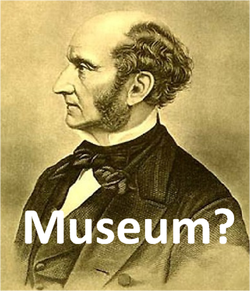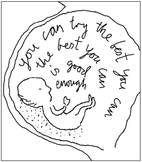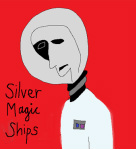
At the heart of the “Innovation in Museum Displays” initiative is the notion that museums should consider giving up control over their collections, exhibitions and their decision-making processes. They should instead incorporate the voices and ideas of their users/visitors into everything they do.
All this talk of public participation and democratic museums is interesting, not least because of the widespread disconnect between the electorate and traditional political parties.
The rationale behind “Innovation in Museum Displays” is reminiscent of arguments propounded in the mid nineteenth century by John Stuart Mill (1806-1873). He is credited with promoting ‘local political institutions’ as potential ‘training grounds for democracy’.(2) The museum of the twenty-first century is being revisioned to take on just that role. This association becomes even clearer when allied with Mill’s belief that small-scale acts of popular governance serve as stepping stones for the enacting of change on the larger political stage.(3)
The extent of this repositioning of museums remains unclear, however. Does this supposed change come at the expense of the museum’s traditional role of collecting, preserving and displaying objects? And are museums really prepared to give up control? Should this be sanctioned and what might be the consequences? And is this a genuine, deep-seated shift in our understanding of museums? Or is it simply a ruse to ensure continued support at a time of increasing political pressure and decreasing financial support?
____
Notes
(1) ‘Stronger together’, The East Midlands Heritage Conference 2013, Wednesday 5 & Thursday 6 June, at Nottingham Conference Centre, Nottingham Trent University, http://emms.org.uk/events/detai/east_midlands_heritage_conference_2013.
(2) See Stuart Burch, “Taking Part: Performance, Participation and National Art Museums” in Knell, S. et al (incl. Burch, S.) (ed.) National Museums: New Studies from Around the World, London: Routledge, 201, pp. 225-246, available at http://www.stuartburch.com/uploads/8/1/9/1/8191744/2011_burch_taking_part.pdf.
(3) Mill, Essays on Politics and Culture cited in Cities @ Crossroads: Digital Technology and Local Democracy in America, Boston University School of Law Working Paper No. 11-11, Boston University School of Law, Harvard Law School, 2011, p. 10, available at http://www.bu.edu/law/faculty/scholarship/workingpapers/2011.html.





